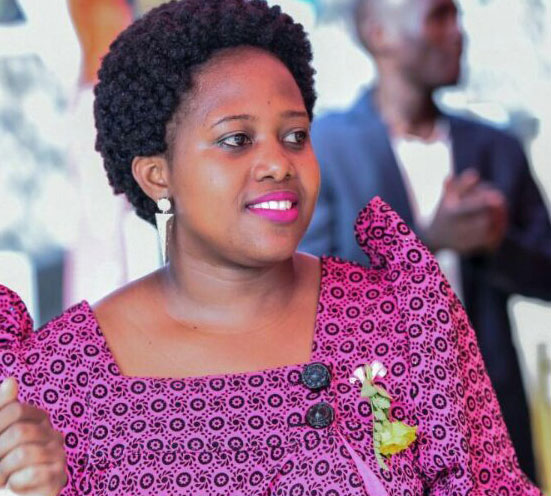
That was at the height of a major police hunt for killers of Suzan Magara, the 28-year old daughter of a prominent businessman whose body had been found a day before at Kajjansi in Wakiso District. Magara went missing on Feb. 07, and was murdered by her captors even after a ransom was paid.
But several experts have told The Independent that the government has access to `location software’ which security agencies can use to trace where any call is coming from. Some of the technology is based on cell towers which telephone companies install to enable mobile phones exchange signals and these are what security agencies base on to track criminals who use mobile phones.
In the Bugolobi area of Kampala city, for example, one will access at least three cell towers when making a mobile phone call. Using a system called triangulation; an operator is able to tell where one is calling from with a margin of error of about 250 metres.
“They can extrapolate the coordinates you are using to communicate with your cell towers by using a phone-like device which they can actually use to trace you even if you are in the market,” Ibrahim Bbosa, the Manager for Consumer Affairs at the Uganda Communications Commission (UCC) told The Independent on May 22.
Some IT savvy individuals like Jude Mukundane who debated the issue on the online IT platform (I-Network) say the towers can narrow down one’s location with an error of margin as low as 50 metres.
“You would not believe how much information mobile networks have on individuals,” Mukundane said, “It is clear the police are not working as closely with the telecom companies as it should.”
Another IT expert, Green Mugerwa, told The Independent that he could not understand why the Uganda Police, the National Identification and Registration Authority (NIRA) and telecom companies and the UCC have not collaborated before to nail criminals using mobile phones.
“I have come to think that they do not know how, have refused to correlate available data, or there is simply no data bank at all,” he said.
For Emma Jones, failure to arrest criminals can only happen when there is “plain negligence from the authorities and probably someone is benefitting from this mess”.
Jones wonders why criminals are requesting for mobile money yet the authorities seem to struggle to find them.
“How hard is it to trace the points from which it (mobile money the criminals demand) is withdrawn or services that it pays for?” asked one Jones.
Following Magara’s kidnap and murder in February, then-Minister of Security, Lt Gen. Henry Tumukunde, told mourners that he was sorry that government security agencies failed to rescue her.
“We plead guilty to the death of Magara because I know we could have saved her but we failed to track the kidnappers because they were too sophisticated,” Tumukunde told mourners at her burial in Kitoba, Hoima district.
President Yoweri Museveni soon after issued an order that no person should be sold a mobile phone or SIM card unless they present a national identity card issued by NIRA and UCC came under increasing criticism for failing to track the criminals using information on all SIM cards in its database.
But Bbosa of UCC told The Independent that it was wrong for people to imagine that the mandatory SIM card registration should have led to increased security.
“When you say Simcard registration is going to curb crime that is a fallacy,” he said, “It can probably help in the investigation of crime.”
Bbosa says SIM card registration was meant to enhance the integrity of national security systems and that security agencies and the telecommunication companies already had existing identification features which help in arresting the kidnappers.
He said every genuine phone in the world has that unique number and it uses that number to communicate.
“When a phone is communicating to the network, it uses that number for communication, meaning you can always know which phone is calling,” he said.
He added that every Simcard comes with a serial number which is unique to a Simcard called an International Mobile Subscriber Number (IMSN). It is this number that officials registering Simcards attach to one’s registration portfolio.
Bbosa says mobile phone companies also have identity registers in their systems which identify active phones, those on roaming, and those that are blacklisted as stolen or otherwise.
“This is an area which is handled by the security officers and mobile phone operators,” he said, “The fact that the system is this much sophisticated means the system is capable of tracking these criminals.”
Bbosa told The Independent that the UCC’s jurisdiction does not include tracking criminals.
“UCC’s role is to enable the process, to make sure a system is registered to a person, a person who is identifiable in the national registry, such that in case you are tracking a particular number, you know where to start.”
“If somebody kidnaps a victim using a mobile phone for communication, the intelligence personnel should be able to apprehend the criminals given the existing call data records and registration details.”
Copycat crimes?
When asked to comment, Luke Oweyesigire, the Kampala Metropolitan Police Spokesperson told The Independent on May 28 that their analysis is yet to arrive at any conclusions.
He refused to be drawn into describing some of the cases as what can be called copycat crimes; that is crimes committed by people who copy another recent crime. The police agree with the general perception— that the upsurge in kidnappings rose following the kidnap of Suzan Magara. Oweyesigire said, however, the police are keeping as open-minded as possible while carrying out its investigations.
 The Independent Uganda: You get the Truth we Pay the Price
The Independent Uganda: You get the Truth we Pay the Price





